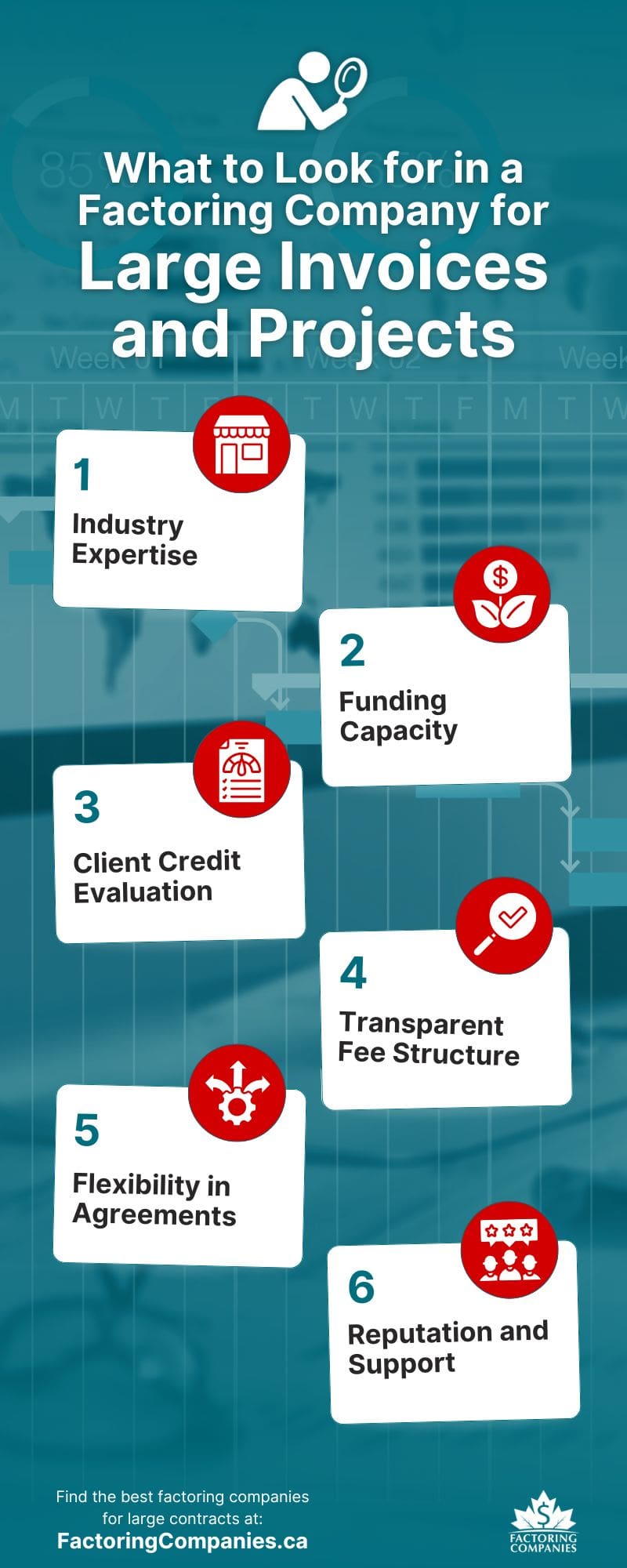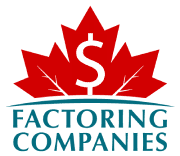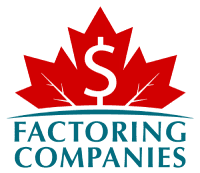
Large-scale projects can be transformative for your business. They help build credibility, attract bigger clients, and support growth. But they also introduce financial complexity that smaller contracts never did. The more your business grows, the more critical it becomes to manage liquidity because growth consumes cash long before it produces it. In this guide, we’ll explore how businesses are leveraging factoring for large projects and what to keep in mind if you’re considering it, too.
Large-Scale Projects Are More Than a “Champagne Problem”
When people talk about “large-scale projects” and “high-value invoices,” it’s typically a reference to contracts that tie up a significant amount of working capital for a long period of time. These are the jobs that keep your team busy for weeks or even months, and they usually come with longer payment terms, multiple stakeholders, and strict compliance requirements.
Large-Scale Projects Are Common in Specific Industries
Large-scale contracts show up across many sectors, but they tend to cluster in industries where delivery happens in stages or where receivables depend on client approval, such as:
- Construction and Infrastructure: It’s common for construction businesses to have multi-phase projects with retainage clauses and complex payment schedules.
- Manufacturing and Fabrication: In the manufacturing industry, you’re likely to deal with custom builds that require purchasing materials upfront and waiting for acceptance testing before invoicing.
- Transportation and Logistics: Large freight contracts that consolidate invoices or extend payment timelines for major shippers can be the norm for many trucking businesses.
- Oilfield and Energy Services: In oilfield services, it’s common for work to be performed under master service agreements where approval cycles delay billing.
- Staffing and Professional Services: The staffing industry may see long-term placements or contracts that involve large workforce deployments.
Large-Scale Projects Can Create Financial Strain
Even if a project is profitable on paper, the delay between completing work and receiving payment can put serious pressure on cash flow. This tension is often caused by:
- Extended Payment Terms: Many large clients pay on 60 to 90 days, but some stretch beyond that, leaving your capital tied up while expenses keep rolling in.
- Milestone-Based Billing: You may only be able to invoice once a phase is approved, even if you’ve already incurred major labour or material costs.
- Retention or Holdback Clauses: In construction, for example, ten percent of every invoice might be withheld until project completion, which can lock up hundreds of thousands of dollars for months.
- High Operating Costs: Payroll, fuel, raw materials, and subcontractors all need to be paid long before your client issues payment.
- Client Concentration Risk: A single large customer can dominate your receivables, meaning one delay can ripple through your entire operation.
Invoice Factoring Alleviates Financial Strain in Large Projects
Invoice factoring, also referred to as accounts receivable factoring, is a unique funding solution that helps businesses that serve other businesses (B2B) or have government contracts (B2G).
When you factor an invoice, you sell it to a factoring company, also called a factor, at a slight discount. The factor then advances you most of the invoice’s value right away and takes over the collections process, saving you the time and effort of chasing invoices.
When your customer pays, you receive the remaining sum, minus a small fee for the service.
In situations where the business that requires upfront cash is not the one invoicing the project owner, as is often the case in industries like construction and oilfield services, where the prime contractor or general contractor bills and then pays subcontractors, factoring companies will often offer quick pay programs. With these, the prime secures the factoring advance and then makes portions of it available for their subs.
Factoring Keeps Capital Moving to Support Large Projects
Factoring can provide stability through every stage of a large contract, especially when cash flow gaps threaten to slow momentum.
- Steady Cash Flow for Project Execution: Factoring gives you access to funds within 24 to 48 hours of invoicing. That means you can pay your crew, order materials, and move on to the next phase without waiting months for payment.
- Stronger Supplier Relationships: When you have predictable cash coming in, you can negotiate better pricing or early-payment discounts from suppliers and improve your margins over time.
- Growth without Additional Debt: Factoring doesn’t appear as a loan on your balance sheet. That’s a major advantage if you want to keep your borrowing capacity open for equipment financing or other strategic investments.
- Risk Management Through Credit Support: Six percent of invoices are eventually written off as bad debt in Canada, per Atradius research. Most factoring companies perform credit checks on your clients, helping you assess the reliability of large payers before you extend terms. This can prevent serious losses if a client experiences financial trouble.
- Flexibility in Funding: You can factor select invoices or entire contracts, depending on your needs. This flexibility helps you manage different projects at different cash flow stages without overcommitting.
There Are Nuances to Factoring for Large Invoices vs. Small Invoices
When you’re dealing with six or seven-figure invoices, the factoring relationship becomes more collaborative. The factor invests more time in evaluating your client’s payment habits, reviewing contract terms, and sometimes even communicating with the client’s accounts payable department to ensure smooth collections. Because of that, the agreement might involve:
- Higher Advance Rates: Established clients and well-structured contracts can justify advances closer to 90 percent.
- Tiered Funding: In some cases, funds are released as project milestones are met, mirroring the structure of your contract.
- Custom Credit Limits: Factoring companies often create dedicated limits for each client account to reflect their payment size and reliability.
Factoring Offers Many Benefits Compared to Other Financing Solutions for Big Projects

When managing large-scale projects, business owners often explore traditional financing before considering factoring. Options like bank loans, lines of credit, or equipment financing can certainly help, but they operate very differently when your cash is tied up in high-value receivables.
- Speed of Access: Traditional loans can take weeks or even months to process. Factoring, by contrast, provides funding within one to two business days of invoicing, which keeps projects moving without disruption.
- Approval Criteria: Banks primarily evaluate your company’s financial history and collateral. Conversely, getting approved for factoring is easy. Factors focus on your client’s creditworthiness instead, which is especially valuable if your business is growing quickly or has limited borrowing history.
- Scalability: A loan or line of credit has a fixed limit. Factoring grows with your sales volume, meaning your funding capacity increases automatically as you take on larger or more frequent contracts.
- Balance Sheet Impact: Factoring is not recorded as debt. For businesses pursuing government or large corporate contracts, that clean balance sheet can help strengthen your financial profile and credibility.
- Project Alignment: Because factoring converts completed work into cash, it aligns naturally with staged or milestone-based projects. Traditional financing, on the other hand, doesn’t adapt as easily to fluctuating project timelines or phased billing.
Choose the Right Factoring Company for Large Invoices and Projects

When your invoices reach higher values, selecting the right factoring company means evaluating rates, alignment, trust, capability, and more.
Industry Expertise
Choose a factoring company that regularly works with businesses in your sector. For instance, construction factoring involves navigating progress billing, holdbacks, and lien rights, while transportation factoring focuses more on load verification and quick-pay programs. A company that already understands your industry will process your invoices faster and anticipate potential challenges before they arise.
Funding Capacity
Ensure the factor can comfortably handle the size and frequency of your invoices. Some firms specialise in small-ticket funding and may struggle to manage advances on invoices worth hundreds of thousands of dollars.
Client Credit Evaluation
The factor should conduct thorough credit checks on your clients. For large projects, this becomes crucial because you’re often extending terms to a single client who represents a substantial portion of your receivables.
Transparent Fee Structure
Look for clarity in how fees are calculated. Some factoring companies charge flat rates, while others use tiered structures based on the duration of the advance. Always confirm how they handle items like wire fees, minimum invoice amounts, and contract termination terms.
Flexibility in Agreements
A good factoring partner will adapt to your billing cycles and project needs. That might include partial advances tied to project milestones or funding against approved progress draws instead of completed invoices.
Reputation and Support
High-value invoices require a close working relationship. Ask for references from other clients with similar transaction sizes and confirm the company’s responsiveness in handling issues such as client disputes or delayed payments.
Follow Best Practices for Maximizing Factoring Benefits
Factoring can be a powerful financial tool for managing high-value invoices, but the impact depends on how strategically you use it.
Build Clear Communication Channels
Keep your factoring company updated on project timelines, billing schedules, and any expected changes. Clear communication helps prevent funding delays and ensures invoices move through the process smoothly.
Submit Accurate Documentation
Errors in invoices or supporting paperwork can cause hold-ups in funding. Double-check that your invoices include purchase order numbers, client approvals, and delivery confirmations before submission.
Factor Strategically
As mentioned earlier, factoring works best when used to support growth or manage large projects, not as a permanent solution for chronic cash shortages. Use it for projects that create strain or offer expansion opportunities.
Monitor Client Credit Trends
Since your factoring arrangement depends on your clients’ ability to pay, stay alert to changes in their payment patterns or financial stability. Many factors provide regular credit reports. If yours does, use them.
Maintain a Strong Internal A/R Process
Factoring complements, but does not replace, good receivables management. Keep detailed records, communicate proactively with clients, and ensure your internal processes align with your factor’s verification requirements.
Leverage Factoring Data for Forecasting
Your factoring statements can reveal trends in payment speed, customer reliability, and seasonal cash flow needs. Analysing these patterns helps you make smarter bidding and budgeting decisions.
Review Terms Regularly
As your business grows, your factoring volume and needs may change. Revisit your agreement annually to ensure you are still receiving the most competitive rates and terms for your invoice size and industry.
Find the Best Factoring Companies for Large Contracts
Because not every factoring company can fund large invoices or handle the complexity of certain projects, finding a factor for your business can be challenging. We help shorten the search by matching you with vetted factors that have a strong track record with large projects and invoices. If you’d like to explore your options, talk to a factoring specialist.
FAQs on Factoring for Large Projects
How can I reduce delayed payments on high-value contracts?
Use clear payment terms, set milestones with defined approval stages, and confirm client invoicing procedures before work begins. Factoring can further reduce delays by verifying invoices, monitoring client credit, and handling collections professionally, ensuring faster access to funds and fewer disruptions to your project timeline.
What do I need to keep in mind when comparing factoring rates for high-value invoices?
Focus on the total cost, not just the rate. Ask how fees are calculated, including administrative, wire, or credit check charges. High-value invoices often qualify for lower rates, but flexibility, funding speed, and client compatibility are just as important for long-term profitability and cash flow reliability.
What changes in my invoice management for factoring?
Factoring requires accurate, verifiable invoices. You may need to include client approvals or proof of delivery and follow your factor’s submission format. Once funded, the factor usually manages collections, so maintaining organized records and clear client communication becomes even more important for transparency and efficiency.
How do I go about tracking factored invoices for cash flow control?
Most factoring companies provide online portals or reports that show which invoices are funded, pending, or paid. Integrating this data with your accounting software helps you forecast cash flow accurately, monitor advance timing, and ensure your internal records align with your factor’s reports.
Are there hidden fees in factoring contracts that can hurt the profitability of large projects?
Some factoring agreements include additional costs like wire transfer fees, minimum invoice requirements, or early termination charges. Review contracts carefully, request a full fee schedule, and confirm how rates adjust if payment terms extend. Transparent factoring partners should clearly outline all potential costs upfront.
How does factoring fit into broader financial planning for large-scale projects?
Factoring supports long-term growth by improving liquidity without adding debt. It can be used alongside traditional financing to fund payroll, materials, or expansion. When integrated into cash flow planning, factoring helps stabilize operations and ensures your business can confidently pursue and deliver larger contracts.

About Factoring Companies Canada
Related Insights
Get an instant factoring estimate
Factoring results estimation is based on the total dollar value of your invoices.
The actual rates may differ.
CLAIM YOUR FREE FACTORING QUOTE TODAY!
PREFER TO TALK?
You can reach us at
1-866-477-1778
Get an instant factoring estimate
Factoring results estimation is based on the total dollar value of your invoices.
The actual rates may differ.
CLAIM YOUR FREE FACTORING QUOTE TODAY!
PREFER TO TALK? You can reach us at 1-866-477-1778











